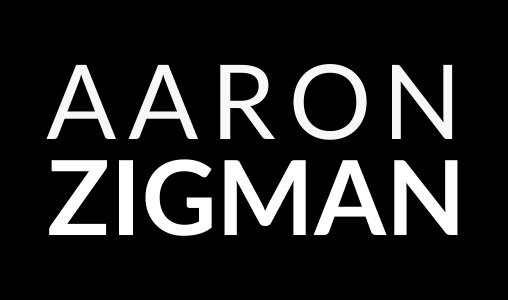Émigré, an oratorio in two acts
U.S. PREMIERE: New York Philharmonic, February 29, 2024
Since the mid-19th century, Shanghai served as a haven for Jews escaping persecution in Europe. Even while under Japanese occupation and still reeling from the atrocities of the Nanjing Massacre, the great Chinese port nonetheless opened its doors to the many Jews seeking refuge during World War II. Émigré tells the story of two such refugees, German Jewish brothers Otto and Josef Bader, who arrive by boat in Shanghai. There they both find love: Otto within the city’s Jewish community and Josef with the daughter of a Chinese herbalist. The patriarchs of both local communities are initially opposed to this cross-cultural pairing but, when tragedy strikes, they come together in their grief and their shared belief in a better future. As Zigman told The New York Times, “Our project is really about bridging cultures and humanity and love, hope, loss and tragedy.” To tell his story, the composer drew inspiration from his classical roots and other sources. Collaborating with librettists Mark Campbell and Brock Walsh, he also incorporated a variety of other musical styles, including Buddhist, Jewish, and Christian prayers. After Émigré’s U.S. premiere earlier this year, NPR described the oratorio as “lush and very cinematic,” and The New York Times found it “hard to imagine a more polished, affectionate performance than the one led on Thursday by the conductor Long Yu.”
“Our project is really about bridging cultures and humanity and love, hope, loss and tragedy.”
Tango Manos, Concerto for Piano and Orchestra
U.S. PREMIERE: San Francisco Symphony, February 14, 2020
“I hope Zigman’s Tango Manos becomes as popular as Boléro. It is one of the few modern works which deserves to be heard by everyone because it will be liked by everyone.”
WORLD PREMIERE: China Philharmonic at the Beijing Music Festival
“Tango Manos’ three distinct movements show the composer [Aaron Zigman’s] gift for melody and orchestration. ”
Tangos manos PROGRAM NOTES:
COMPOSED: Completed in 2019, co-commissioned by the Beijing Music Festival, Radio France Philharmonique, and the San Francisco Symphony.
WORLD PREMIERE: October 14, 2019. Jean-Yves Thibaudet/ soloist and Huang Yi/conductor, China Philharmonic at the Beijing Music Festival
US PREMIERE: San Francisco Symphony, February 14, 2020
INSTRUMENTATION: Solo piano, 3 flutes (3rd doubling piccolo), 2 oboes (2nd doubling English horn), 2 clarinets, 2 bassoons (2nd doubling contrabassoon), 4 horns, 4 trumpets, 3 trombones and bass trombone, tuba, timpani, percussion, harp, celesta, and strings
AARON ZIGMAN began training as a classical pianist at age five. At age eighteen he began studying orchestration with legendary MGM composer and orchestrator George Bassman. Zigman soon became an in-demand writer, producer, arranger and/or orchestrator for artists including Aretha Franklin, Natalie Cole, John Legend, Quincy Jones, Phil Collins, Christina Aguilera, Dionne Warwick, Carly Simon, Ray Charles, Tina Turner, The Four Tops, Seal, and many others.
His film career was launched in 2000 when director Nick Cassavetes heard Zigman’s symphonic work Rabin and asked him to score the movie John Q., starring Denzel Washington. The pair have since collaborated on six films, including the iconic romantic classic The Notebook. Aaron Zigman and pianist Jean-Yves Thibaudet first worked together on the score for the 2017 film Wakefield, directed by Oscar-nominee Robin Swicord, starring Bryan Cranston and Jennifer Garner. The two had a natural affinity, and when Thibaudet was exploring new projects, Zigman was at the top of his mind.
When Long Yu [Artistic Director and Chief Conductor of the China Philharmonic and founder and former artistic director of the Beijing Music Festival] had the idea to do a tango concerto with Thibaudet, he asked him to look at who could write that and Thibaudet recommended Aaron Zigman. Yu was impressed with the teaser that Zigman wrote and a commission soon followed from the Beijing Music Festival, Radio France, and the San Francisco Symphony.
“Music transcends all barriers. In a world full of chaos and turmoil, music has the power to bind humanity...”
Zigman believes tango is one of music’s most colorful and emotional forms, making the idea of a tango‐based concerto for piano and orchestra both intriguing and compelling. Zigman points out that the tango expresses feelings of “pain, beauty, and love, yet it is also a dance that must reflect these emotions. It’s a very introspective art form.” In his three‐movement concerto, Zigman pays homage to tango’s unique essence, referencing its characteristic rhythms and harmonies while drawing on its rich sensuality and color. The piano is a powerful protagonist throughout the piece, while the orchestra echoes the various thematic structure—soloist and ensemble joining together in a powerful symbiosis. In Zigman’s own words: “Music transcends all barriers. In a world full of chaos and turmoil, music has the power to bind humanity, creating a bridge between all of us and reminding us that we are all one people. I am honored and grateful that this work is being performed by the world-renowned San Francisco Symphony under the baton of the highly-acclaimed Fabien Gabel and one of the most incredible pianists of our time, the amazing Jean-Yves Thibaudet.”



